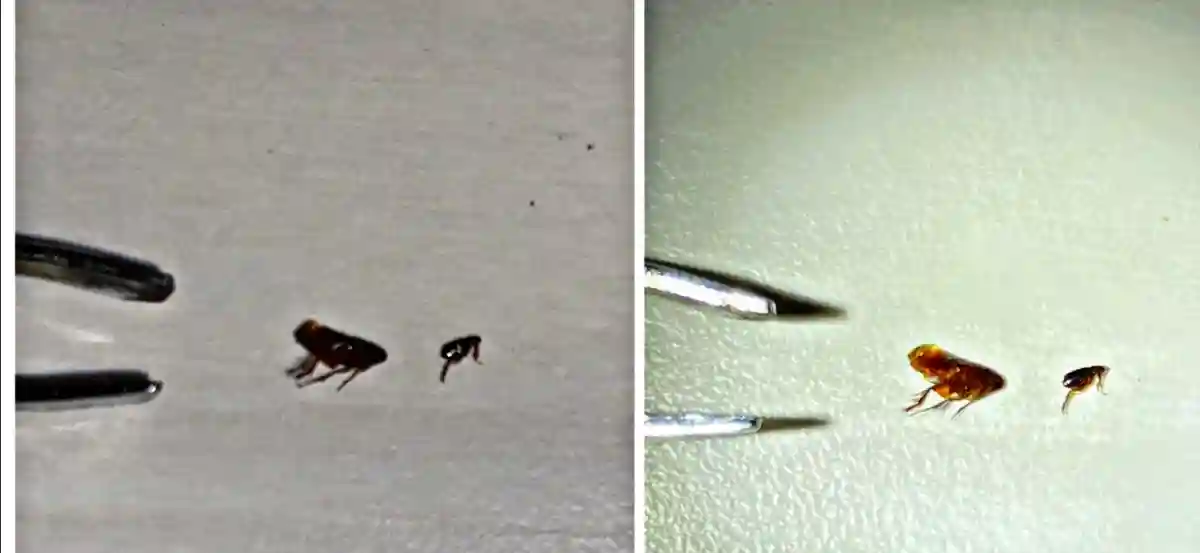How long can mice live in walls? Generally, 1-2 years but this depends on the availability of food, water, and the absence of predators or threats
If you have a mouse in your house, especially one that’s inside your walls, you know how much trouble they can cause. The squeaky noises they create at night can make you feel like you are in a scary movie.
People who own homes might believe that having these small creatures running around inside the walls is preferable to having them in the main part of the house. However, the truth is that mice building their nests inside your walls can damage your home a lot. They can create holes in the walls, gnaw through drywall, and even chew on wires, which can lead to a risk of fires.
How Long Can Mice Live in Walls?

Earlier, we stated that mice can live 1-2 years long in your walls. But the truth is that mice can live in your wall as long as its lifespan.
Some factors can however determine the length of time they will dwell in there. In their natural habitat or the wild, the average lifespan of a mouse is about 1 to 2 years. However, many don’t live to their maximum age due to predators, diseases, and other environmental factors.
So, if mice find their way into the walls of homes or buildings, they can live there for their entire lifespan if they have access to food and water. Your walls provide them with protection from predators and harsh weather conditions.
Factors that determine how long mice can stay in walls
- Food and Water.
- If there’s a steady supply of food and water nearby, such as from a kitchen or pantry, mice can thrive for a long time.
- Predators
- The presence of cats or other predators in the house can reduce their lifespan.
- Diseases
- Just like in the wild, diseases can affect mice populations in homes.
- Pest Control Measures
- If you take measures to eliminate mice, such as using traps, poisons, or calling pest control professionals, mice lifespan in walls can significantly reduce.
You should also note that mice can reproduce quickly in walls. A single female mouse can give birth to around 80-90 offspring in her lifetime, and they can start breeding as early as 6 weeks old.
How Do Mice Get Into Walls of House?
Mice are really small and can make themselves even tinier by bending their bones, which helps them squeeze into holes as small as a dime.
They are great at climbing and can scale almost any surface, which lets them get into your home from the ground or even the roof.
Once a mouse or rat finds a way to get into your walls, they usually make a nest there because they do not have to worry about other animals that might want to eat them.
If you think there might be mice in your walls, here’s how they might have gotten in:
1. Check the outside of your house for little holes where these pests might enter
- The outside of your home is the main spot to inspect.
- Once they get inside, they won’t want to leave your cozy and warm house.
- Search for openings and holes outside your home, like cracks in the foundation, doors, and windows.
- Also, keep an eye out for gaps in the siding, shingles, and chimneys.
2. Check inside your house for openings.
- Search for holes in the floor, along the walls, near the baseboards, and in the frames around windows.
- Look inside your pantries and cabinets for openings too.
- Also, don’t forget to look for signs of mice in spots like your attic, air ducts, and crawl spaces.
Removing Mice from Inside the Walls
Nobody wants a mouse in their house, especially not inside the walls. Once mice are in your walls, they can move around freely and chew through everything. Consider these simple tips to remove mice from walls.
- Use rodent repellent as your first step to get rid of mice living in walls.
- You want to keep your home clean to get rid of these pests.
- Clean up all the crumbs from countertops and floors to start.
- Also, use airtight containers to store your food. The objective is to take away their food source and make them find food somewhere else.
- Check for water sources too, like in basements and under sinks.
You will need simple home remedies for mice in walls.
After you believe the pests are out of your walls, make your home mouse-proof. Use steel wool and a sealant like caulk to close up the mouse openings you found while checking. Those clever pests will not be able to get back in.
Reasons You Don’t Want Mice Presence in Walls
If you hear a mouse scratching and chewing inside your walls, make sure you act fast. And if the scary noises aren’t convincing, here are a few more facts to show why you should take action right away:
1. Mice bring more mice
The smell of their pee and poop will invite more buddies, leading to a big group of mice in no time.
2. Mice multiply quickly
A mommy mouse can have 5-10 sets of baby mice in a year, with 6-8 babies in each set.
3. Mice live a while
They can go without water for months and food for 1-2 weeks. With both, they can live up to two years.
Since they make lots of babies, they might stay in your walls forever unless you do something to get rid of them.
4. Dead bad smell
If a mouse dies in your wall, the stinky odor will stick with you until you take it out. It’s really strong. That’s why experts do not recommend using mouse traps (like poison, sticky traps, or snap traps) since mice might die and leave a bad smell behind.
Dead mice also bring fleas and germs. Fortunately, you can follow these safe measures to get rid of dead mouse smell when you can’t find it.
5. Sickness
Mouse poop and pee do not just look bad, they can have Hantavirus. This virus can get to people if they breathe in dirty air. It is not safe to use live traps, like ones with food like peanut butter or cheese, because they could be risky to touch.
6. Fire danger
Inside your walls, there are many electrical wires. If a mouse chews on these wires, which often happens, there is a big risk of starting a fire.
7. Harm
Besides wires getting chewed, the wooden walls will also be harmed with chewed holes and made wet from urine.
- How Long Do Mice Live? Orkin
- Screens and Other Deterrents for Birds, Rodents, and Other Pests. Energy.Gov Resources
- Scent marking behavior as an odorant communication in mice. PubMed Central
- Hantavirus Disease. NY Department of Health
Read also: Mice in Kitchen at Night [What to Do]


![Dead mouse in trap disappeared [what really happened] Dead mouse in trap disappeared [what really happened]](https://fodcas.com/wp-content/uploads/2023/01/IMG_COM_20230124_2026091.jpg)